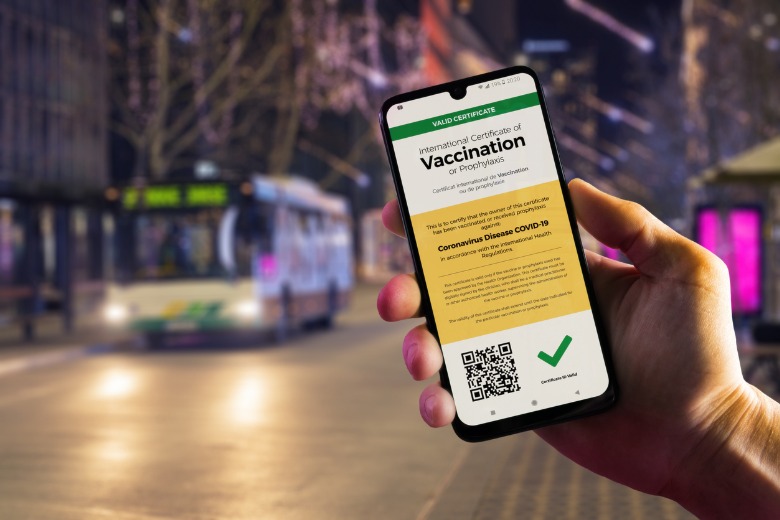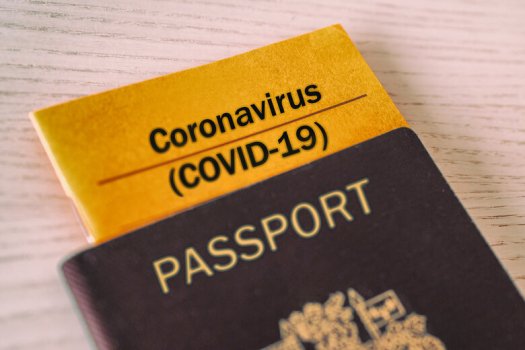
A think tank has warned against rushing forward with proposed vaccine passports without establishing protections and parameters as the NSW government prepares to trial the technology next month.

The Centre for Responsible Technology, an initiative of the Australia Institute, this month published a blueprint for a ‘safe, fair and ethical’ vaccination passport.
The paper says mass vaccination is needed to mitigate the effects of COVID-19 and to help ease restrictions, and vaccination ‘passports’ can be an effective way to track vaccination status.
However, it recommends developing some key principles including built-in privacy mechanisms and limitations on how the data is used.
NSW trial
The release of the paper came just days before digital and customer service minister Victor Dominello announced a two week pilot integrating vaccination certificates into the Service NSW app in regional NSW from October 6.
Once in the Service app, certificates will be able to be scanned on entry into venues to prove a person has been vaccinated in a one-step process.
The pilot will involve 100-600 people and facilities like clubs and aged care centres, and if successful, will be opened up to the rest of the state.
The app will give the state government access to Commonwealth vaccination information.
“We’re getting the information from the federal government… through the Australian Immunisation Register,” Mr Dominello told a media conference on Wednesday.
“That pipeline is then securely created to Service NSW and will be fed into the Service NSW app.”
Unintended consequences
But director of the Centre for Responsible Technology Peter Lewis says unexpected, catastrophic events like COVID-9 can lead to poorly-thought out solutions that may have unintended consequences.
“When there is a big external event and we turn to technology to solve our problems the risk is that we go down paths we’re not thinking through fully,” he told Government News.
When there is a big external event and we turn to technology to solve our problems the risk is that we go down paths we’re not thinking through fully.
Peter Lewis
September 11 fundamentally changed the way we regarded online privacy in the name of fighting terrorism, he said.
“Now, in the name of fighting terrorism, we’ve created this business model which is all about tracking user behaviour for commercial ends,” he said.
“So while it’s hard to think all those things through at the start, you can at least establish some parameters.”
One safeguard is ensuring the passports are single-use technology rather than a long-term digital footprint and a new way of tracking citizens for other purposes.
Opening doors to unwanted places
Another key principle is ensuring the data doesn’t become fodder for a secondary market in vaccine data.
“History tells us that in black swan events we use technology in ways that deals with the crisis but it opens doors for developments that we haven’t previously imagined,” Mr Lewis said.
History tells us that in black swan events we use technology in ways that deals with the crisis but it opens doors for developments that we a haven’t previously imagined.
Peter Lewis
“So we just think that in the rush to reopen that we should be thinking through what guardrails we should put around this technology and also which red lines.”
Mr Dominello said the government is currently in the process of consulting with industry over the design of how the system will work “and we’re pretty much there”.
The Services NSW vaccine certificate will include security features including a hologram and an additional QR code to validate its authenticity.
Comment below to have your say on this story.
If you have a news story or tip-off, get in touch at editorial@governmentnews.com.au.
Sign up to the Government News newsletter
One thought on “Vaccine passports will need ‘guard rails and red lines’”
Leave a comment:
Most read
Scathing report finds little has changed at PwC
Qld council welcomes progress on massive battery system
Inquiry to consider how federal govt can address councils’ sustainability issues
‘Local’ procurement turns out not to be so local, committee hears
Another report finds local government falling down on cyber security


All of these measures depend on assumptions of wealth, ableism, internet access and privilege. They risk criminalizing people who already face disadvantage : (a) many people can’t afford smartphones (b) many people can’t afford unlimited data plans (c) lots of people can’t read, or can’t read English (d) some people don’t have access to good health services (e) many parts of NSW have poor internet coverage, especially if you can’t afford an expensive Telstra plan (e) many people have visual, learning or other disabilities that make access to this technology difficult/ impossible (f) many people can’t be vaccinated due to age or underlying health conditions